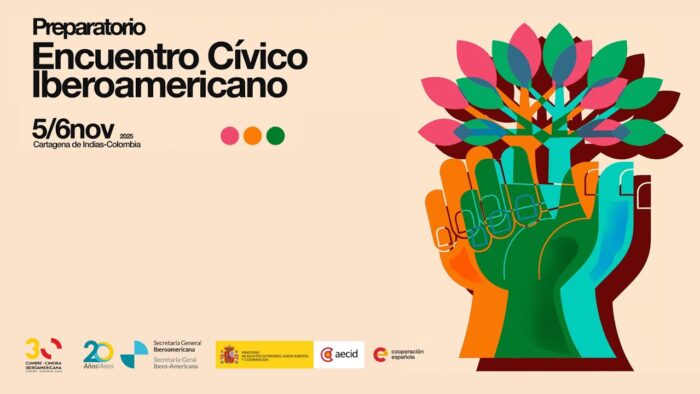Organization: CANADEM
Country: Peru
Closing date: 18 Apr 2017
CANADEM is seeking seasoned, Spanish-speaking professionals with previous relevant experience with WASH Cluster Coordination who are available for an immediate deployment to Lima, Peru as a seconded expert with UNICEF for a 3 month contract.
Position Title: WASH Cluster Coordinator
level: P4
Location: Lima, Peru
Duration: 3 months
Receiving Agency: UNICEF
BACKGROUND
The cluster approach ensures clear leadership, predictability and accountability in international responses to humanitarian emergencies by clarifying the division of labour among organizations and better defining their roles and responsibilities within the different sectors of the response. It aims to make the international humanitarian community better organised and more accountable and professional, so that it can be a better partner for the affected people, host governments, local authorities, local civil society and resourcing partners
In the past few days, “El Niño Costero” has continued to cause heavy rains and flooding across large parts of Peru. The disaster has affected more than 1 million people, which includes over 350,000 children. The most severely affected districts are Piura, Lambayeque, La Libertad and Lima Metropolitana. The Government has added Tumbes on the northern border of Peru with Ecuador to the areas where needs assessments are taking place.
Humanitarian needs are wide-ranging. Thus far it is estimated that 29,000 houses and dwellings have been destroyed or collapsed, affecting at least 120,000 people who are in immediate need for alternative shelter and other types of assistance. There are reports of many children and families living in unofficial shelters which are unlikely to meet basic needs, including water, sanitation and hygiene.
Many more people in the affected areas have no access to clean water and there is concern that levels of personal hygiene and sanitation are low, increasing risks of disease outbreaks, including acute diarrhea, dengue and Zika virus. UNICEF Peru is responding to the crisis and is actively supporting the Government to protect those affected and will concentrate its response to the needs of children in the most affected areas. An integrated approach will be conducted, providing Protection; Water; Sanitation; Hygiene; Nutrition and Health; Education. Technical assistance will be provided to the line Ministries involved, and to regional and local governments in order to strengthen their coordination and response capacities targeting children and adolescents. Direct assistance, through implementing partners, to affected girls, boys and adolescents in the targeted areas will also be supplied.
RESPONSIBILITIES
The post holder has joint responsibility with the Cluster Lead Agency, resourcing partners and all cluster participants at the national and sub-national level for the efficient management and functioning of the WASH Cluster encompassing the following:
Inclusion of key humanitarian partners:
- Ensure inclusion of key WASH humanitarian partners in a way that respects their mandates and programme priorities;
- Act as focal point for inquiries on the WASH cluster’s response plans and operations;
Establishment and maintenance of appropriate humanitarian coordination mechanisms:
- Ensure appropriate coordination between all WASH humanitarian partners (national and international NGOs, the International Red Cross/Red Crescent Movement, etc…), through establishment/maintenance of appropriate WASH Cluster/sector coordination mechanisms, including working groups at the national and, if necessary, local level;
- Secure commitments from WASH humanitarian partners in responding to needs and filling gaps, ensuring an appropriate distribution of responsibilities within the WASH group, with clearly defined focal points for specific issues where necessary;
- Ensure the complementarity of different WASH humanitarian actors’ actions;
- Promote WASH emergency response actions while at the same time considering WASH within early recovery planning as well as prevention and risk reduction concerns;
- Ensure effective links with other Cluster/sector groups;
- Ensure that WASH coordination mechanisms are adapted over time to reflect the capacities of local actors and the engagement of development partners;
- Represent the interests of the WASH Cluster/sector in discussions with the Humanitarian Coordinator and other stakeholders on prioritization, resource mobilization and advocacy;
Coordination with national/local authorities, State institutions, local civil society and other actors:
- Ensure that WASH humanitarian responses build on local capacities;
- Ensure appropriate links with national and local authorities, State institutions, local civil society and other relevant actors and ensure appropriate coordination and information exchange with them.
Participatory and community-based approaches:
- Ensure utilization of participatory and community based approaches in WASH related assessments, analysis, planning, monitoring and response.
Attention to priority cross-cutting issues:
- Ensure integration of agreed priority cross-cutting issues in WASH assessments, analysis, planning, monitoring and response (e.g. age, diversity, environment, gender, HIV/AIDS and human rights);
Needs assessment and analysis:
- Ensure effective and coherent WASH assessment and analysis, involving all relevant partners
- Maintain information on all current and potential WASH partners, their capacities and areas of work (including Who, What , Where and by When) through effective integration with Agriculture Project Information System ( APIS) and OCHA
Emergency preparedness:
- Ensure adequate WASH related contingency planning and preparedness for potential significant changes in the nature of the emergency;
Planning and strategy development:
- Ensure predictable WASH action within;
- WASH assessment and analysis; development (adaptation of generic standards) of standard assessment formats;
- Identification of gaps in the field of WASH and conceptualize how sectoral needs can be met through collective delivery
- Developing/updating agreed WASH response strategies and action plans and ensuring that these are adequately reflected in the overall country strategies, such as the Common Humanitarian Action Plan (CHAP) an integral component of the CAP process.
- Drawing lessons learned from past WASH activities and revising strategies and action plans accordingly;
- Developing an exit, or transition, strategy for the WASH interventions and key Cluster/sector partners.
Application of standards:
- Ensure that WASH cluster/sector participants are aware of relevant policy guidelines, technical standards and relevant commitments that the Government/concerned authorities have undertaken under international human rights law;
- Ensure that WASH responses are in line with existing policy guidance, technical standards, and relevant Government human rights legal obligations.
Monitoring and reporting:
- Ensure adequate monitoring mechanisms are in place (with OCHA support) to review impact of WASH interventions and progress against implementation plans. This specifically needs to include an analytical interpretation of best available information in order to benchmark progress of the emergency response over time. That is – monitoring indicators (quantity, quality, coverage, continuity and cost. Target population data including desegregation by sex, age etc…) of service delivery which are derived from working towards meeting previously defined standards.
- Ensure adequate WASH impact reporting and effective information sharing (with OCHA support) to demonstrate the closing of gaps.
Advocacy and resource mobilization:**
- Identify core WASH advocacy concerns, including resource requirements, and contribute key messages to broader advocacy initiatives of the HC, UNICEF and other actors;
- Advocate for donors to fund WASH actors to carry out priority WASH activities in the sector concerned, while at the same time encouraging WASH actors to mobilize resources for their activities through their usual channels.
Training and capacity building:
- Promote and support training of WASH humanitarian personnel and capacity building of humanitarian partners, based on the mapping and understanding of available capacity;
- Support efforts to strengthen the WASH capacity of the national/local authorities and civil society.
Provision of assistance or services as a last resort:
- Where critical gaps in addressing WASH priorities are identified the WASH Cluster Coordinator will:
- Lobby for implementing humanitarian partners (including UNICEF WES) to address the gaps.
- With advice/support from the HC and support from other humanitarian partners will advocate, as appropriate, on the adequate provision of resources and safe access.
- If persistent gaps remain then with the full support of the UNICEF Country Representative will specifically request that the UNICEF WES Country Team to take action to fill the critical gaps through direct implementation action.
ACCOUNTABILITY
The post holder is accountable to:
- UNICEF representative, who will in turn ensure that the post holder is provided with all necessary support and guidance, and that any issues that arise relating to “double-hatting” are addressed
- WASH Cluster participants, who will in turn ensure that they deliver on their agreed minimum commitments (see IASC Reference Module for Cluster Coordination at the Country Level, November 2012)
- WASH Cluster coordination team members, who will in turn support the post holder in line with their terms of reference
- Inter-cluster coordination bodies established by the HCT/UNOCHA
- Affected populations through agreed mechanisms
Accountability to the country representative/cluster coordinator, cluster participants, coordination team members and inter-cluster coordination bodies will be expressed in regular review meetings.
COMPETENCIES
Core competencies:
- Understands the rationale behind Humanitarian Reform, its main components and recent developments including the Transformative Agenda.
- Understands, uses and adapts the tools, mechanisms and processes developed as part of Humanitarian Reform
- Communicates, works and networks effectively with a wide range of people to reach broad consensus on a well-coordinated response, and demonstrates leadership where required
- Thinks and acts strategically and ensures that cluster activities are prioritised and aligned within an agreed strategy
- Demonstrates commitment to the cluster and independence from employing organisation
- Builds, motivates and leads the cluster coordination team
Technical competences :
Understands key technical issues for the cluster sufficiently well enough to be able to: engage with cluster participants; make full use of their experience and knowledge; guide strategy and plans; communicate and advocate on important issues
Languages:
The post holder will have at least CEFR level B1 in the following languages:
- Spanish
- English
QUALIFICATIONS & EXPERIENCE
Qualifications
University degree, preferably at an advanced level, in a subject area relevant to the cluster
Extensive work experience relevant to this post may be considered as a replacement for formal qualifications.
Formal training in cluster coordination an advantage
Experience
At least 7/10 years progressively responsible humanitarian work experience with UN and/or NGO, including programme management and/or coordination in the first phase of a major emergency response relevant to the cluster
Extensive work experience outside the humanitarian sector which is relevant to this post may be considered as a replacement for humanitarian experience.
How to apply:
If you have all of the above-mentioned skills, please register with CANADEM before contacting us. This can be done on our website at www.CANADEM.ca/register . Then send an email no later than the 18th of April, 11:59 pm EDT to pantiwa.naksomboon@CANADEM.ca with a Subject Line: "UNICEF-WASH Cluster Coordinator-Peru". In your email, please include an updated resume, date of availability, your current location, and a phone number where we can reach you.





